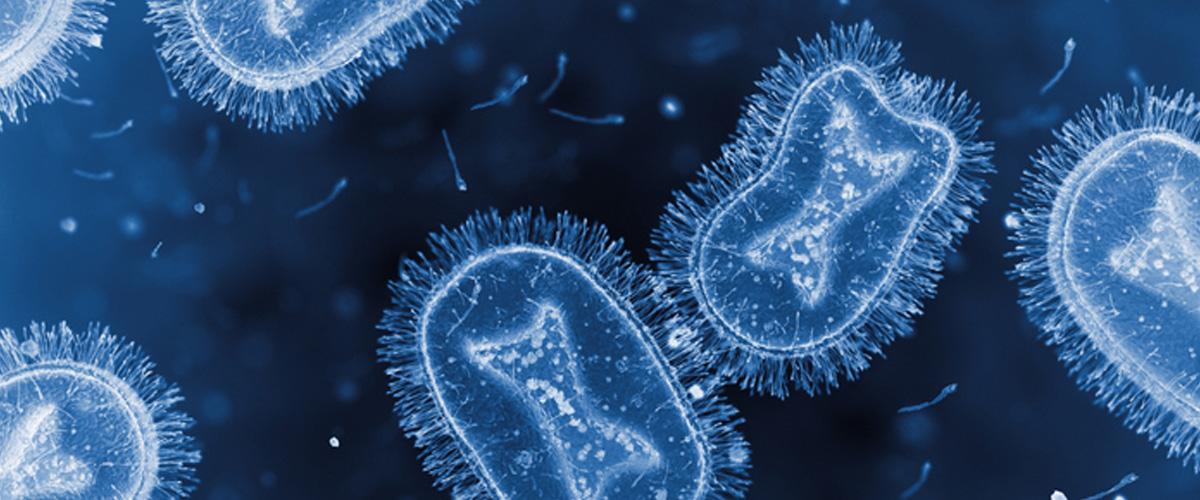Latest on Mpox: What to Know
Cases of the mpox virus continue in the United States. Infectious diseases experts share how to stay protected and explain the symptoms of the viral illness.


In May, the World Health Organization (WHO) declared that mpox was no longer a public health emergency of international concern, noting a “significant decline in cases and no changes in the severity and clinical manifestation of the disease.”
In the United States, where numbers of mpox cases have declined but continue, the Centers for Disease Control and Prevention (CDC) warn of a potential resurgence in cases and recommend following measures to stay protected against the virus.
Mpox is a viral disease that “causes a skin rash similar to chickenpox or shingles,” says Dr. E. Yoko Furuya, chief epidemiologist and medical director of Infection Prevention and Control for NewYork-Presbyterian Hospital. “One way to stay protected is to get vaccinated.”
When cases of the mpox virus peaked in August 2022 in the U.S., the Biden administration declared the viral disease a public health emergency, allowing public health agencies to direct money toward vaccines and drug strategies and to utilize emergency funding. The announcement came a month after WHO had declared the mpox virus a public health emergency of international concern in July 2022.

Dr. Jason Zucker
While daily cases decreased and have remained low since peaking, Chicago had a slight uptick in cases that began in April 2023.
“The public health emergency is over, but cases continue,” says Dr. Jason E. Zucker, infectious diseases specialist at NewYork-Presbyterian/Columbia University Irving Medical Center. “There may be a risk for a resurgence in cases, so it is important for people to get vaccinated and to know that mpox is still out there and to get tested if they have symptoms.”
Dr. Furuya and Dr. Zucker explain what to know about the vaccines and where people can get the two-dose shots. They also share what to know about the mpox virus, including its symptoms and available treatments.
How effective is the vaccine for mpox, and where can someone get the two-dose shots? How can people get tested for mpox?
Dr. Furuya: Vaccines developed against smallpox are effective in preventing mpox infection. Data from the CDC published in May showed that one of the vaccine formulations, called JYNNEOS, was 75% effective after one dose and 86% effective after the second dose.
JYNNEOS is available through local health departments, public health clinics, and hospitals. It is a series of two injections given four weeks apart. The New York City Department of Health and Mental Hygiene (NYCDOH) states that the JYNNEOS vaccine can be administered to:
- People of any sexual orientation or gender identity who have or may have multiple or anonymous sex partners or participate or may participate in group sex.
- People of any sexual orientation or gender identity whose sex partners are eligible per the criteria above.
- People who know or suspect they have been exposed to mpox in the last 14 days.
- Anyone who considers themselves to be at risk for mpox through sex or other intimate contact.
More information is available on the NYCDOH Mpox site and people can find their nearest vaccination site in its vaccine location finder.
Dr. Zucker: If people are experiencing symptoms, they should contact their healthcare provider who can test for mpox. People in New York City can also call 311, where they can be connected to providers who can get check for symptoms and order tests for mpox. In addition, the NewYork-Presbyterian Comprehensive Health Program’s Sexual Health Clinic and New York City Department of Health Sexual Health Clinics are available for testing and vaccination.
It is important for people to get vaccinated and to know that it takes two to three weeks for the vaccines to work. Additionally, it is possible that some people may still get mpox even after vaccination, but it is likely that vaccination makes it less severe. It is also important to know that just being vaccinated does not necessarily mean people no longer have to worry about mpox.
What causes the mpox virus?
Dr. Furuya: Mpox is caused by the human mpox virus that is part of the same family of viruses as the variola virus that causes smallpox. It has been known to cause infections in humans since the 1970s, and it has mostly been seen in Central and West Africa in people who had contact with animals like monkeys, squirrels, and other rodents. Up until the outbreak in 2022, most infections outside of these African countries have been travel-related.
What do we know about the status of cases?
Dr. Furuya: As of June 7, the U.S. has had over 30,000 confirmed cases, of which 4,262 have been reported in New York, the state with the second highest number of cases.
Many of the cases happen to be spread among social networks of people who self-identify as gay or bisexual and other men who have sex with men. Because many cases appear to be spread through close, intimate contact within these social networks, people are often developing skin lesions localized to the genital, anal, and groin areas, and these can mimic sexually transmitted infections like syphilis and genital herpes. However, anyone in close contact with an infected person could get infected, and not all the cases are occurring within these social networks.

Dr. Yoko Furuya
What are the symptoms of mpox?
Dr. Furuya: People infected with human mpox virus classically develop a skin rash that can appear anywhere on the body and can look just like red spots or bumps on the skin but can also then develop into fluid-filled skin lesions (what we call vesicles or pustules) like chickenpox or shingles. Sometimes before the rash develops, people can have a fever, chills, or swollen lymph nodes, and people can also have spots that appear inside the mouth and throat.
Outbreaks in the past year have shown that many people have had slightly different symptoms than what was seen historically, including sometimes very few skin lesions, sometimes just in one part of the body like the genital area. When this happens, it can be mistaken for sexually transmitted infections like herpes or syphilis.
Dr. Zucker: The incubation period is up to 21 days, which means it can be up to 21 days after an exposure before you see any symptoms. Patients are no longer infectious only after their sores have scabbed over, those scabs have fallen off, and new skin has grown in its place. This process can take up to four weeks.
How contagious is mpox?
Dr. Furuya: Mpox can be spread from either infected people or infected animals, most commonly by direct contact with the rash, scabs, or body fluids. Alternatively, direct contact with material like clothing or linens that have been in contact with the infectious rash or body fluids can spread the viral disease. Mpox can also spread from respiratory secretions or saliva, but, unlike COVID-19, transmission requires more prolonged, face-to-face contact or intimate physical contact. Finally, infected pregnant people can spread the virus to their fetus through the placenta.
“People infected with human mpox virus classically develop a skin rash that can appear anywhere on the body and can look just like red spots or bumps on the skin but can also then develop into fluid-filled skin lesions (what we call vesicles or pustules) like chickenpox or shingles.”— Dr. Yoko Furuya
How serious is it?
Dr. Furuya: Mpox generally causes a skin rash, and sometimes a fever, chills, and swollen lymph nodes. These are usually mild, but they can cause a lot of discomfort, and sometimes the skin lesions can be more significant. There are other strains of the virus that can cause more severe illness, but the one that is currently spreading in the U.S. and other countries is a relatively mild one.
Dr. Zucker: Mpox can cause extremely painful, uncomfortable, and unpleasant symptoms, but the virus has a very low hospitalization and mortality rate. So far there have been approximately 42 deaths reported out of 30,468 cases in the U.S.
How is mpox treated?
Dr. Furuya: Most people with mpox virus infection have a mild illness that resolves on its own without specific treatment. However, because mpox and smallpox belong to the same family of viruses, there are treatments that have been developed for smallpox that can be used to treat mpox if infections are more severe, or if the infected person has a weakened immune system and therefore is at higher risk of developing a more severe illness. These treatments include certain antiviral drugs such as tecovirimat.
Dr. Zucker: An ongoing clinical trial is evaluating the effectiveness of the antiviral tecovirimat for the treatment of mpox in adults and children with mpox infection in the U.S. The clinical trial consists of 73 study locations, including NewYork-Presbyterian/Columbia University Irving Medical Center and NewYork-Presbyterian/Weill Cornell Medical Center, and aims to enroll more than 500 people nationwide.
“My two most important messages to the public are: If you have lesions, get tested right away; and if you’re at risk, get vaccinated and check yourself regularly for any evidence of infection.”— Dr. Jason Zucker
How concerned should the public be?
Dr. Furuya: Mpox infections in the U.S. continue, but unlike COVID-19, the mpox virus does not seem to spread easily between people without close contact, so the risk to the general U.S. population is still low at this time.
Dr. Zucker: My two most important messages to the public are: If you have lesions, get tested right away; and if you’re at risk, get vaccinated and check yourself regularly for any evidence of infection.
Like any other transmissible disease, we need to have open dialogue and conversations, share accurate information, and give people easy access to care so they can take the necessary steps to get tested and treated and help protect others.

